According to a market prophet, a recession is most likely already beginning and the S&P 500 might collapse 30%. Gary Shilling believes that interest rates will return to 1% or 2%, but he doubts that they will do so before summer. Shilling thinks earnings will decline, believes there will be a lot more layoffs, and prefers Treasuries to gold.
According to Shilling, there might already be a recession in the US and there’s little chance the Fed would lower interest rates before the summer.
Gary Shilling, who over 45 years ago founded his own consulting firm after serving as Merrill Lynch’s first top economist, provided the gloomy forecast during a late-December webcast hosted by Rosenberg Research.
Although Shilling is renowned for having made a number of wise predictions over the years, the economy and financial markets have recently defied his pessimistic predictions, stating, “I think we still can have a 25% or 30% decline in the S&P.”
According to Shilling, the pressure on corporate profits this year and the delayed effects of the Federal Reserve’s interest rate hikes could push the benchmark US stock index as low as 3,300 points, or its lowest level since the fall of 2020.
“I believe that a recession is currently underway. NBER holds off until they have received all of the revisions, data, and other materials. When they finally pick up, it is not very useful.”
Shilling was alluding to the National Bureau of Economic Research, a for-profit institution that declares recessions formally, typically a few months following their commencement.
“Soft landings happen not too often. In the entire post-war era, there has only been one, and it occurred in the mid-1990s. A soft landing, in my opinion, is when the Fed raises its target rate and then lowers it without a recession. A forecast for a soft landing is defying precedent.”
Shilling was bringing up recent surveys that indicate small business owners are lowering their aspirations for expansion due to concerns about the state of the economy. “We are witnessing a decline in profitability. Weakness in employment is evident. Naturally, the process has been longer than usual because companies have been so difficult to work with when hiring new employees that it is taking them a great deal of two-by-four strikes to the head before they decide to fire someone.”
He was implying that businesses were reluctant to implement layoffs because of the pandemic’s labor shortages. “I don’t believe they represent long-term relief. I believe they are just postponements.” Shilling contended that although government initiatives and companies’ unwillingness to lay off employees have supported the economy, declining personal savings, growing credit card debt, and an increase in debt delinquencies portend an impending downturn.
“Excessive levels of enthusiasm have been observed. The Fed has been front-running, and it is unlikely that this will have any negative impact on interest rates until the middle of the year. In the meanwhile, the economy will most likely keep getting worse and there is mounting evidence of a recession. The sensation that there will be a gentle landing and a sudden cut I believe that they will both be let down.”
Last but not least, Shilling said, “I don’t see any reason why the Fed isn’t going to knock the funds rate down to close to where it was when we started.” Rates are expected to drop back to 1% or 2%, but they have soared from almost zero to over 5%.




